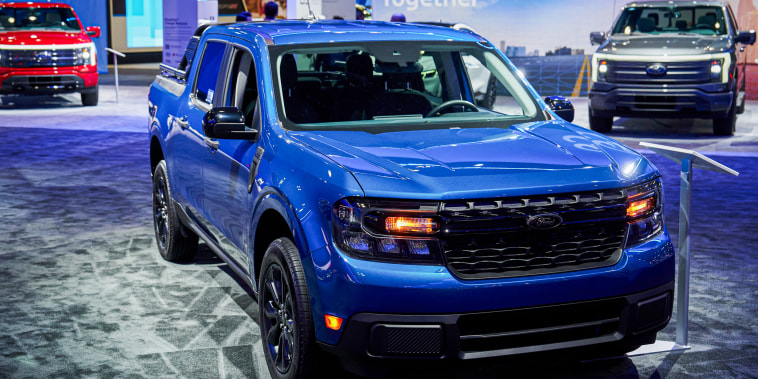
Ford Shifts Gears: Delaying All-Electric SUV to Fast-Track Hybrid Lineup by 2030
Ford to Delay All-Electric SUV to Focus on Offering Hybrid Vehicles Across Its Lineup by 2030
Ford Motor Company’s decision to postpone the release of its all-electric SUV and instead shift its focus towards expanding its lineup of hybrid vehicles represents a strategic move that aligns with the evolving landscape of the automotive industry. With the global push towards sustainability and eco-friendly transportation solutions, the shift towards hybrid vehicles is a calculated step that allows Ford to cater to a broader market while also addressing the growing demand for environmentally conscious options.
By delaying the release of the all-electric SUV, Ford can now prioritize the development and integration of hybrid technologies across its lineup, ensuring that these vehicles meet the expectations of consumers in terms of performance, efficiency, and sustainability. The decision showcases Ford’s commitment to staying ahead of the curve and adapting to market trends, ultimately positioning the company for long-term success in a rapidly changing industry.
The move towards offering more hybrid vehicles reflects Ford’s recognition of the increasing importance of sustainability and environmental responsibility in the automotive sector. In an era where climate change and environmental concerns are at the forefront of public discourse, automakers are under pressure to reduce their carbon footprint and offer greener alternatives to traditional gasoline-powered vehicles. By expanding its range of hybrid options, Ford can appeal to consumers who are looking for more environmentally friendly transportation solutions without sacrificing performance or convenience.
Furthermore, the decision to delay the release of the all-electric SUV underscores Ford’s commitment to thorough research and development processes. By taking the time to refine and enhance its hybrid technologies before incorporating them into a wider range of vehicles, Ford can ensure that its products meet the highest quality standards and deliver on the promise of sustainability and efficiency. This meticulous approach to innovation and product development reflects Ford’s dedication to providing cutting-edge solutions that meet the needs and expectations of modern consumers.
Additionally, Ford’s focus on hybrid vehicles allows the company to leverage existing infrastructure and expertise in hybrid technology, paving the way for a smoother transition towards more sustainable transportation solutions. By building on its experience with hybrid vehicles, Ford can streamline the development and production process, reducing costs and accelerating the rollout of new models that incorporate hybrid technologies. This strategic advantage positions Ford as a leader in the shift towards greener transportation options, giving the company a competitive edge in a rapidly evolving market.
In conclusion, Ford’s decision to delay the release of its all-electric SUV in favor of expanding its lineup of hybrid vehicles by 2030 represents a forward-thinking strategy that embraces the growing demand for sustainable transportation solutions. By focusing on hybrid technologies, Ford can cater to a wider range of consumers while also addressing environmental concerns and market trends. This move highlights Ford’s commitment to innovation, quality, and sustainability, positioning the company for success in a dynamic and evolving automotive landscape.
